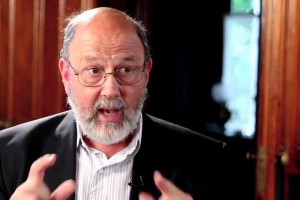This past weekend was Biola’s Center for Christian Thought’s Conference on Psychology and Spiritual Formation. While I didn’t get to attend the whole conference, I did get a chance to hear from some amazing and brilliant people like James Houston and Bruce Hindmarsh from Regent College, Robert Emmons from UC Davis, Ellen Charry from Princeton Theological Seminary, C. Stephen Evans from Baylor University, James Wilhoit from Wheaton College, and Justin Barrett from Fuller Theological Seminary. It is so inspiring listening to brilliant people talk about their research in the relational aspect of how psychology and spiritual formation are fundamentally both about the growth and development of human persons and the human spirit – that these are two sides of the same coin. Both are about growing in relationship with God, self, and others.
Some of my favorite quotes from this conference were from James Houston and Bruce Hindmarsh from Regent College. “There is no greater richness of your identity than having your person rooted in Christ,” said James Houston as he spoke on the necessity of not having just a “professional” identity, but to have a deep understanding of who we are in Christ. He gave a prophetic critique of our professionalized and individualistic culture which I think were accurate assessments of our present-day American culture. I enjoyed hearing from him, as a lucid and wise 85-year old man who knew C.S. Lewis, and is one of the forerunners in Christian Higher Education. He is someone who has seen so much life, and can see and expose the patterns of our times.
Another Regent faculty, Bruce Hindmarsh said, “Becoming more Christian is becoming more human,” during his talk on showing how psychology and spiritual formation are fundamentally related as both are interested in the growth of people. Since people are both spiritual and emotional beings, psychology and spiritual formation are necessary understanding Christian and human development. As we grow in Christ and in knowing God, we also need to grow in our human capacities of understanding ourselves, as our emotional capacities also expand. We are not to divorce our spiritual lives from our humanity.
I liked hearing from these speakers because they all have a fundamental belief that in addressing Christian spiritual growth, we also need to understand how humans grow and develop – and how psychology aids us in this understanding. These two are related to each other and are not meant to be separate or compartmentalized. As humans, we are both body and spirit, and we must understand growth in a holistic way.
Yet, the ultimate highlight for me at this conference was seeing old friends and making new ones. I especially enjoyed the conversations I had with people during meal times, in-between sessions, and after sessions. I am always so blessed and amazed at hearing about God’s work in people’s lives – and after graduating, it is always good to reconnect with former classmates from the Institute of Spiritual Formation. It helps that I haven’t gone too far (since I still work on the same campus), but it is definitely a different feeling not being a student anymore. I’m also grateful for the encouragement of other minority women who were at that conference (since it is a Caucasian-male dominated field). As a petite Filipina, I sometimes look around and feel a bit intimidated by all the tall Caucasian men, who are always very friendly and don’t ever intend to intimidate me (as I confess these things on a blog with mostly white dudes), yet it is something I notice and feel at times. So it is encouraging to connect with other minority women, and know that I’m not alone. And in these instances, I am again reminded of how intrinsically relational we are, and how the process of growth ultimately depends on the relationships we have with God and others. We were not meant to do life alone, and we need each other to grow and flourish.





1 Comment
Leave your reply.